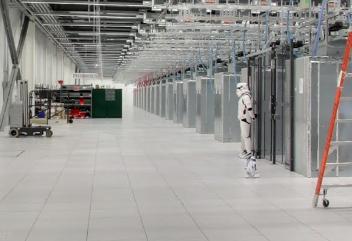Google is search, of course, but it is also OS (Android), systems (Glass) and increasingly, maybe, hardware. Rumors are swirling that through careful acquisitions and focused internal development, Google is set to make its own server SoCs.

Google’s Larry Page has stated that they are in the hardware business. They’ve been making the server motherboards for their datacenters, and Google Glass includes a Google-branded CPU board. The Google job listings include a number of openings under the category of Hardware, but they are spread over PCB, CAD, mechanical, test, etc. They want engineers to design electronics for ground station and flight avionics, automotive systems, electricity delivery controls, Google Fiber, and other projects. There is no doubt that Google is designing hardware, but there looks to be little in the job listings to indicate they are ramping up a processor design team.
What about acquisitions? They snapped up one semiconductor company, processor maker Agnilux, in 2010 (which was founded by folks from PA Semi after it was bought by Apple in 2008). They also bought PeakStream, a startup who made tools to program multicore processors, in 2007. However, they didn’t buy any assets from Calxeda, a maker of ARM-based server SoCs that went under in December 2013.
I find it hard to argue that the ROI is there for Google to make server chips. Google currently uses Intel chips on server motherboards of Google design. Intel has economy of scale, and the cost and complexity of designing and fabricating a server SoC is huge. What advantage over Intel chips could they get? If Google did come up with a chip that beats Intel on performance per watt, would they then sell to Facebook, Amazon, and Microsoft in order to make the costs worth it? On the other hand, Google has a silly amount of money to blow on proof of concept projects and advanced research. I mean, they do have a space program. Could a network processor SoC be more complex and expensive? Hmm, maybe.






Speculative Execution: Rethinking the Approach to CPU Scheduling